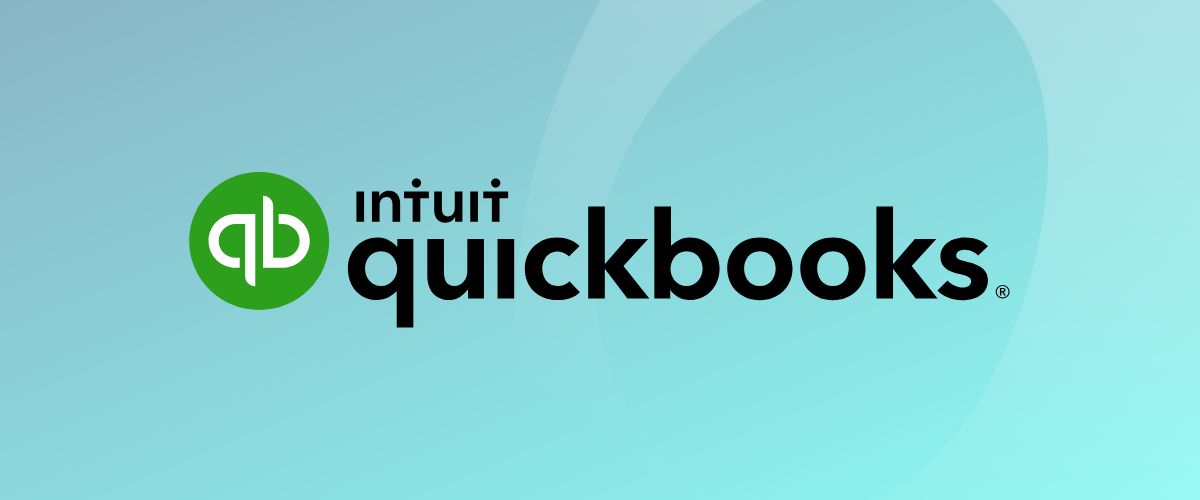Compare Sage Intacct and QuickBooks for features, scalability, pricing, and integrations. Discover which accounting solution best fits your business in 2025.
Upgrading your financial management software is a big step for your business—it signals growth, ambition, and a readiness to tackle new challenges. We know this can be challenging, particularly when comparing widely used solutions like Sage Intacct and QuickBooks. Although both systems are popular, each is designed for different types of businesses and stages of growth.
If your business is currently evaluating accounting software or wondering if your existing solution still meets your needs, this article is designed specifically for you. We'll compare Sage Intacct and QuickBooks, examining factors such as scalability, features, automation, integrations, and customer support.
By clearly highlighting the strengths and ideal use cases for each system, you'll hopefully gain a deeper understanding of which solution aligns best with your business’s current requirements and future objectives.
|
Feature
|
Sage Intacct
|
QuickBooks
|
|
Business Size
|
Mid-market businesses, growing SMEs
|
Small businesses, brand-new startups
|
|
Scalability
|
Highly scalable, suitable for multiple entities and international operations
|
Only for single-entity businesses
|
|
Financial Reporting
|
Advanced, customisable reports and dashboards
|
Basic financial reporting
|
|
Automation & AI
|
Extensive automation with built-in AI capabilities
|
Limited automation capabilities
|
|
Integrations
|
Wide range of native integrations, offers open API
|
Limited native integrations
|
|
User Support
|
Dedicated, personalised customer support
|
Basic, non-personalised support
|
Book a free 30-minute Sage Intacct Discovery Call
Sage Intacct and QuickBooks Overview
QuickBooks

QuickBooks is an accounting software solution primarily designed for small businesses, freelancers, and start-ups. It's popular due to its simplicity, affordability, and ease of use, particularly for businesses with straightforward financial needs.
Core features include basic bookkeeping, invoicing, payroll, expense tracking, and simple reporting tools. QuickBooks regularly updates its platform with incremental improvements, but its core functionality remains centred around supporting smaller-scale financial management tasks. This makes it ideal for businesses in their early stages or those with relatively simple financial structures.
Sage Intacct

Sage Intacct is designed specifically for growing SMEs and mid-market businesses looking to support more complex financial operations. It offers advanced financial management tools, automation, and comprehensive reporting capabilities to handle increased complexity, multiple business entities, and international operations.
Key features of Sage Intacct include highly customisable financial reporting, AI-driven automation for repetitive tasks, multi-currency management, and extensive integration capabilities with other business systems. The platform receives regular updates and innovations, ensuring it adapts to the evolving requirements of mid-sized and growing companies.
DISCOVER THE SIGNS OF OUTGROWING QUICKBOOKS
Key Differences Between Sage Intacct and QuickBooks

Financial management software needs to do more than handle the basics—it should support the way your business operates and grows. While Sage Intacct and QuickBooks share some core accounting functions, they differ in scalability, automation, reporting, integrations, and long-term value.
Below, we’ll break down these key differences to help you find the best fit for your business.
The ability to scale with your business is one of the biggest differences between Sage Intacct and QuickBooks. QuickBooks is designed for small businesses with straightforward accounting needs, making it a great starting point for sole traders and early-stage companies. However, as operations become more complex — whether through multi-entity management, international transactions, or increased reporting requirements — its limitations become clear.
Sage Intacct is built to handle these challenges, offering advanced financial management tools that support growing businesses. It enables multi-entity consolidation, real-time visibility across financial data, and automation that reduces manual processes. For companies planning long-term growth, Sage Intacct provides the flexibility and scalability that QuickBooks struggles to match.
Both Sage Intacct and QuickBooks cover core accounting tasks, but the depth and flexibility of their features set them apart. QuickBooks provides basic bookkeeping tools, including invoicing, payroll, and expense tracking, making it a practical choice for businesses with straightforward financial processes. However, its reporting capabilities, automation, and financial controls are also relatively basic.
Sage Intacct, on the other hand, offers a more advanced feature set designed for businesses that require deeper financial insights and automation. It includes sophisticated reporting tools, AI-powered automation for repetitive tasks, and greater customisation for complex financial workflows. Businesses managing multiple entities or working with different currencies benefit from built-in consolidation tools that QuickBooks lacks. These capabilities make Sage Intacct the stronger choice for companies that need more than just the essentials.
Integrations play a crucial role in ensuring that your accounting software works seamlessly with the rest of your business systems. QuickBooks does integrate with various third-party applications, including payroll, e-commerce, and payment processing tools. However, its integration capabilities are often limited, particularly when connecting with more complex ERP, CRM, or industry-specific solutions.
Sage Intacct offers far greater flexibility, with an open API that allows businesses to connect with an even wider range of software solutions. It integrates natively with key business applications such as Salesforce and provides advanced automation options that reduce the need for manual data entry. This makes it a stronger choice for companies that require a connected, scalable financial management system rather than a standalone accounting tool.
The true value of accounting software goes beyond its upfront price—it’s about how well it supports your business over time. QuickBooks is often chosen for its accessibility and ease of setup, making it a practical solution for small businesses with straightforward needs. However, as financial processes become more complex, businesses may find themselves relying on add-ons, workarounds, or manual processes that reduce efficiency.
Sage Intacct is designed to provide long-term value by streamlining financial operations, automating routine tasks, and offering deeper financial insights. Its customisable reporting, AI-driven automation, and scalability help businesses reduce inefficiencies and gain real-time visibility into performance. For companies looking to future-proof their financial management, Sage Intacct provides a level of control and efficiency that standard accounting tools struggle to match.
-
User experience and customer support
A smooth user experience and reliable support are essential when managing your business’s finances. QuickBooks is known for its straightforward interface, making it easy to get started. Its simplicity is an advantage for those with basic accounting needs, but as businesses expand, users often find themselves relying on additional tools, manual workarounds, additional spreadsheets, or third-party integrations to fill gaps.
Sage Intacct is built to offer both ease of use and advanced capabilities. Its intuitive, cloud-based interface allows finance teams to automate workflows, access real-time data, and customise reports without unnecessary complexity. While it offers deeper functionality than QuickBooks, businesses don’t have to navigate it alone. Sage Intacct is implemented and supported by an accredited Sage Business Partner like accord, who provide hands-on guidance, tailored training, and ongoing support to ensure businesses get the most out of their system.
Which Software Is Right for Your Business?

The right accounting software depends on not just what your business needs today, but also what it will need in the future. QuickBooks is a good choice for businesses that require simple bookkeeping, invoicing, and payroll tools.
However, for businesses experiencing growth, increasing transaction volumes, or managing multiple entities, Sage Intacct offers the scalability and automation needed to keep financial operations running smoothly without the additional headache. Its advanced reporting, AI-driven automation, and seamless integrations provide the flexibility and control that growing businesses often struggle to achieve with entry-level accounting software like QuickBooks.
So, if your business is starting to outgrow its current financial processes, it may be time to explore a system built to support long-term success.
Conclusion
Both Sage Intacct and QuickBooks offer strong financial management capabilities, but the right choice depends on the complexity of your business and its future plans. Understanding these differences is the first step in making the best decision for your business.
But we know finding the right accounting software isn’t always straightforward. If you're considering your next move, getting the right guidance can make the process much easier. That’s why we want to help you.
As a certified Sage Business Partner, accord helps businesses upgrade to Sage Intacct with confidence. From implementation and training to ongoing support, we make sure your financial system is built to handle both your current needs and future growth. Want to see Sage Intacct in action and learn how it can benefit your specific business? Let’s chat.
Book your free Discovery Call here
Discover more about Sage Intacct...